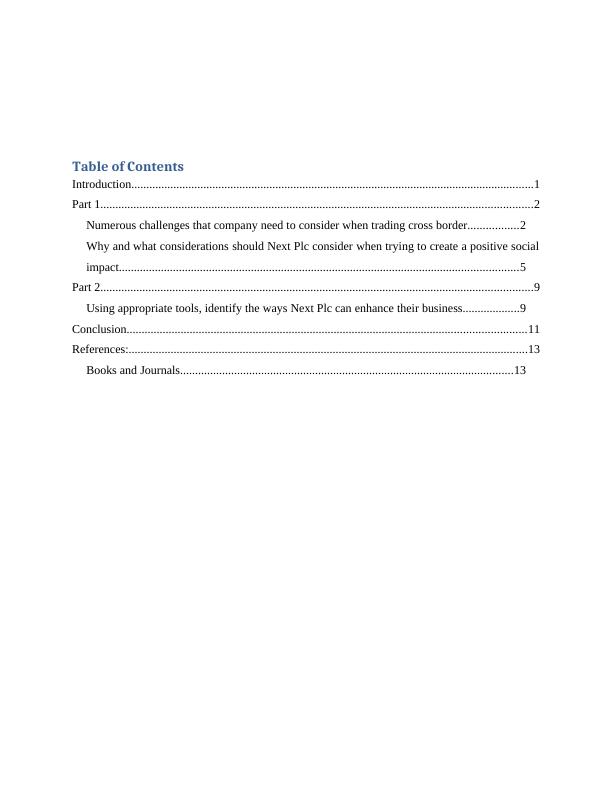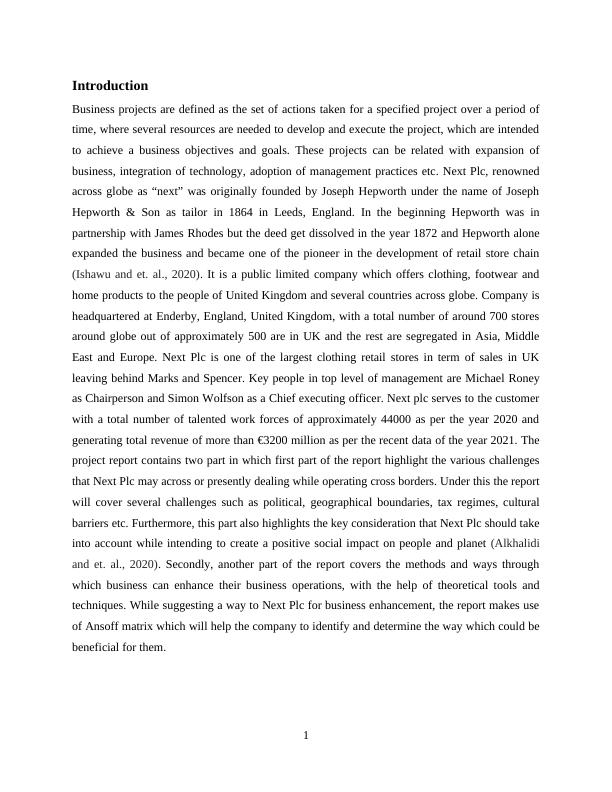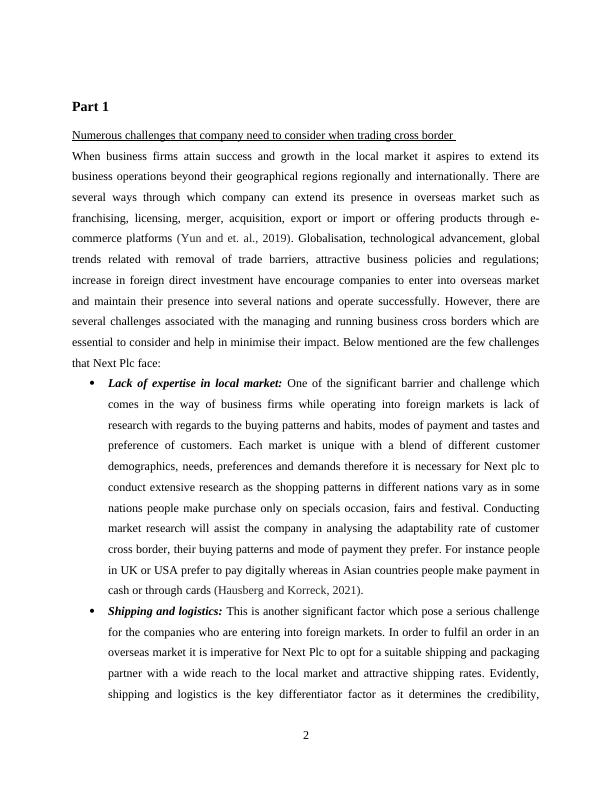Challenges and Considerations for Next Plc in Cross Border Trading and Creating a Positive Social Impact
16 Pages5454 Words113 Views
Added on 2022-11-25
About This Document
This document discusses the challenges faced by Next Plc in cross border trading and the considerations they should take into account when trying to create a positive social impact. It explores the lack of expertise in local markets, shipping and logistics challenges, changes in regulations, lack of harmonized standards, marketing and local promotions, and resistance of target audience and intense competition. The document also highlights the importance of understanding the unique assets of the company, creating social impact while promoting company growth, developing a social impact committee, and forming strategic partnerships with non-profit organizations.
Challenges and Considerations for Next Plc in Cross Border Trading and Creating a Positive Social Impact
Added on 2022-11-25
ShareRelated Documents
End of preview
Want to access all the pages? Upload your documents or become a member.
International Business: Business Expansion in Global Markets
|13
|4143
|118
Sample Context Of Business Assignment
|8
|2442
|34
Leadership, Management Practices and Strategies of Next Plc
|8
|2442
|486
Retail Theory and Practice
|12
|3215
|46
Operation and Project Management in Next Plc: A Review and Critique of Implementation of Operational Management Principles
|17
|5546
|468
Operations and Project Management: A Case Study of Next Plc
|21
|6032
|368




